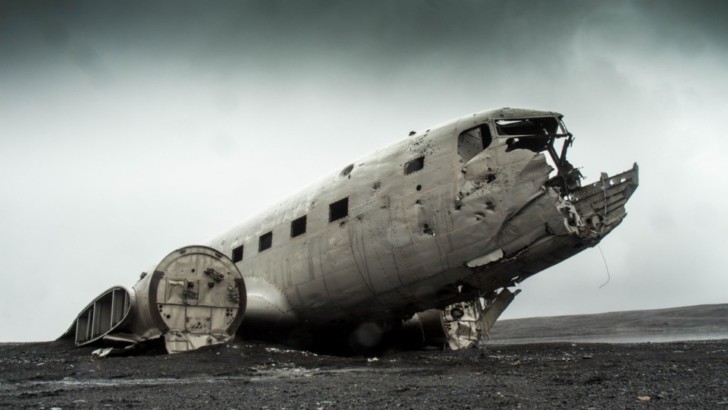It’s no secret that the aviation industry isn’t doing well. People aren’t just refusing to fly – they’re afraid to fly. When people fear your product or service, that’s bad for business.
So much like the Great Recession when banks and car manufacturers went to the government for a bailout, the airlines want assistance. And we should give it to them. Transportation is a vital infrastructure that makes other businesses more productive. The trade group Airlines for America says $54 billion should be enough. That includes:
- $25 billion in grants to passenger carriers
- $4 billion in grants to cargo carriers
- $25 billion unsecured loans
- Additional tax breaks
The problem is in the details. Grants and unsecured loans? How crazy are they? It’s like totaling your car, asking your parents for a new one plus pocket money, and saying: “I’ll try to pay you back but, hey, maybe not. We’ll see how much I have left after spring break.”
Not in my household. If the airlines want $54 billion, let’s give it to them in the form of a secure loan. That means instead of being backed by an empty promise, the government has the right to repossess the airline’s fleet and other assets if it fails to make payment. Just as your bank has the right to repossess your car or house.
Furthermore, the loan, like RadCred, should be senior to other debt. That means the government is first in line to get paid, followed by junior debt and then the equity shareholders. This makes sense. Without government intervention, the junior debtors are likely to get pennies on the dollar, and shareholders could get nothing. If the government does intervene, it’s possible that the airlines will return to profitability, paying off their loan in a few years and waving goodbye as the government exits its position.
Similar shenanigans happened during the financial crisis. Some loans went bad, but ultimately the government turned a profit and many companies are healthier today than they were before.

But it’s going to hurt in the near term. Those junior debtors will see the value of their bonds fall because, duh, they are no longer first in line to get paid. Greater risk requires a higher return. If the face value of the bond at the end of its term is fixed, then the way to increase the return is to lower the current value.
The story is a little different for shareholders with stock. You may have heard of “market cap,” which is the price of a company’s shares times the total number of shares outstanding. But the true value of a firm will account for its debt, as well. Imagine a hypothetical takeover. The buyer needs to pay off the lender as well as buy all the shares.
In the same way, you buy a house for a certain price but only “own” a small stake, and the rest is covered by a mortgage. If you later sell the house, you have to pay the mortgage back first before you get what’s leftover. The value of the firm, like a house, can fluctuate over time. The debt is a fixed loan. That’s why the shareholder’s piece, represented by stock, will also fluctuate with the value of the firm even though they don’t own the entire firm.
If the government steps in and offers $54 billion in new debt to the U.S. airline industry, the shareholders will experience a bloodbath. Very little value will be leftover for the shareholders to enjoy because so much of the airlines’ current value will be owed to the government first to pay back this debt. However, it provides an opportunity for the airlines to avoid bankruptcy, eventually repay the loan, and allow the shareholders to enjoy a possible upside in the future.
No, this isn’t nationalism. The government isn’t buying shares in the company, so they don’t have voting rights or a seat on the board of directors. They can’t tell the airline how to run its business. They could exercise their regulatory powers, but that is separate from offering a loan. Any regulation should be enacted because it’s the right thing to do and not because someone has someone else over a barrel. Besides, it shows weakness. The government doesn’t need to hand out money before it can pass laws.
The big opposition to this plan is that the shareholders will lose so much value. And shareholders are voters. Without adjusting for the tax benefits of holding debt, we can assume that a new loan directly reduces the market cap of the airline just as a second mortgage on your house reduces your ownership stake. With the same number of shares, the price per share will go down.
Here are the market caps as of March 17 for the top six U.S. carriers (excluding regional carriers) and passenger volume for 2018 (2019 data is still confidential). The table shows what would be left over if we allocate the requested $54 billion among just these six carriers in proportion to their passenger volume.
| Airline | Passengers | Market Cap | Loan | Remaining Equity |
|---|---|---|---|---|
| Southwest Airlines | 164M | $19.8B | ($13.6B) | $6.2B |
| Delta Air Lines | 152M | $20.3B | ($12.6B) | $7.7B |
| American Airlines | 148M | $6.6B | ($12.2B) | ($5.6B) |
| United Airlines | 113M | $7.6B | ($9.3B) | ($1.7B) |
| JetBlue Airways | 42M | $2.6B | ($3.5B) | ($0.9B) |
| Alaska Airlines | 34M | $4.0B | ($2.8B) | $1.2B |
Ouch. Three of these airlines now have a negative market cap, meaning there’s more debt outstanding than the firm is worth. No wonder they want grants with no strings attached.
But the airlines have been making billions in profits for several years now, increasing fees and fares while instituting punitive policies on their customers. They had the opportunity to build a rainy day fund. They chose not to. Instead they gave the money back to shareholders through buybacks and dividends. If the shareholders were able to benefit in the fat years, why shouldn’t they be punished when times are lean? That is the entire point of being a shareholder. Instead of getting the security of a loan with a fixed interest rate, you jump on a roller coaster, taking whatever is left over.
And this time, unfortunately, things are pretty bad.
The government has plenty of opportunity to support a struggling industry. There is zero reason to hand out free cash in the form of grants and unsecured loans. There is also zero reason to be fearful of a pseudo-communist state that nationalizes the industry. Give the airlines the money they need, but make the shareholders and other debtors take the haircut they deserve.

